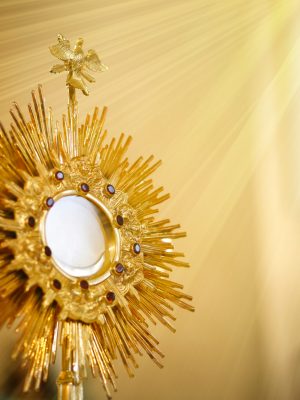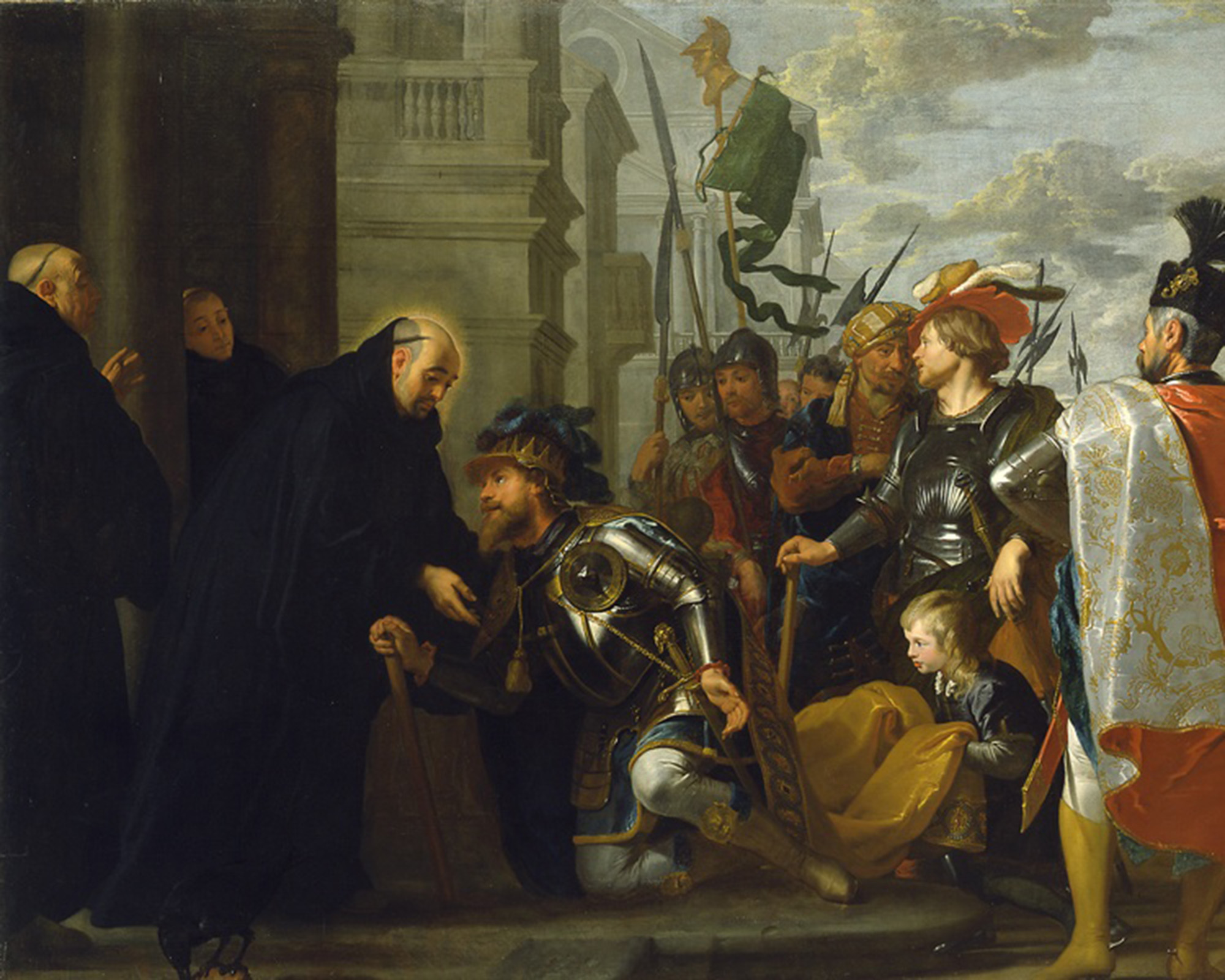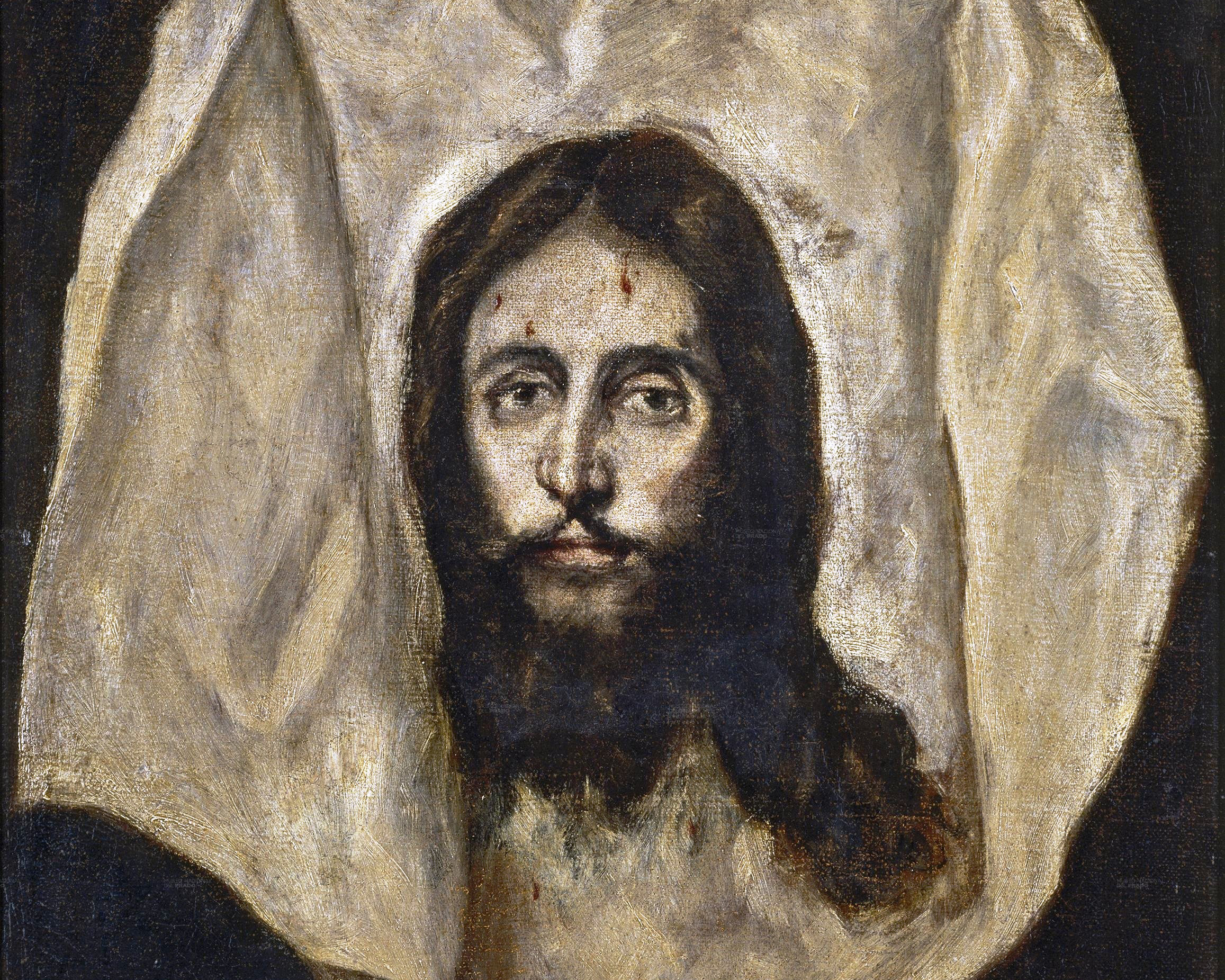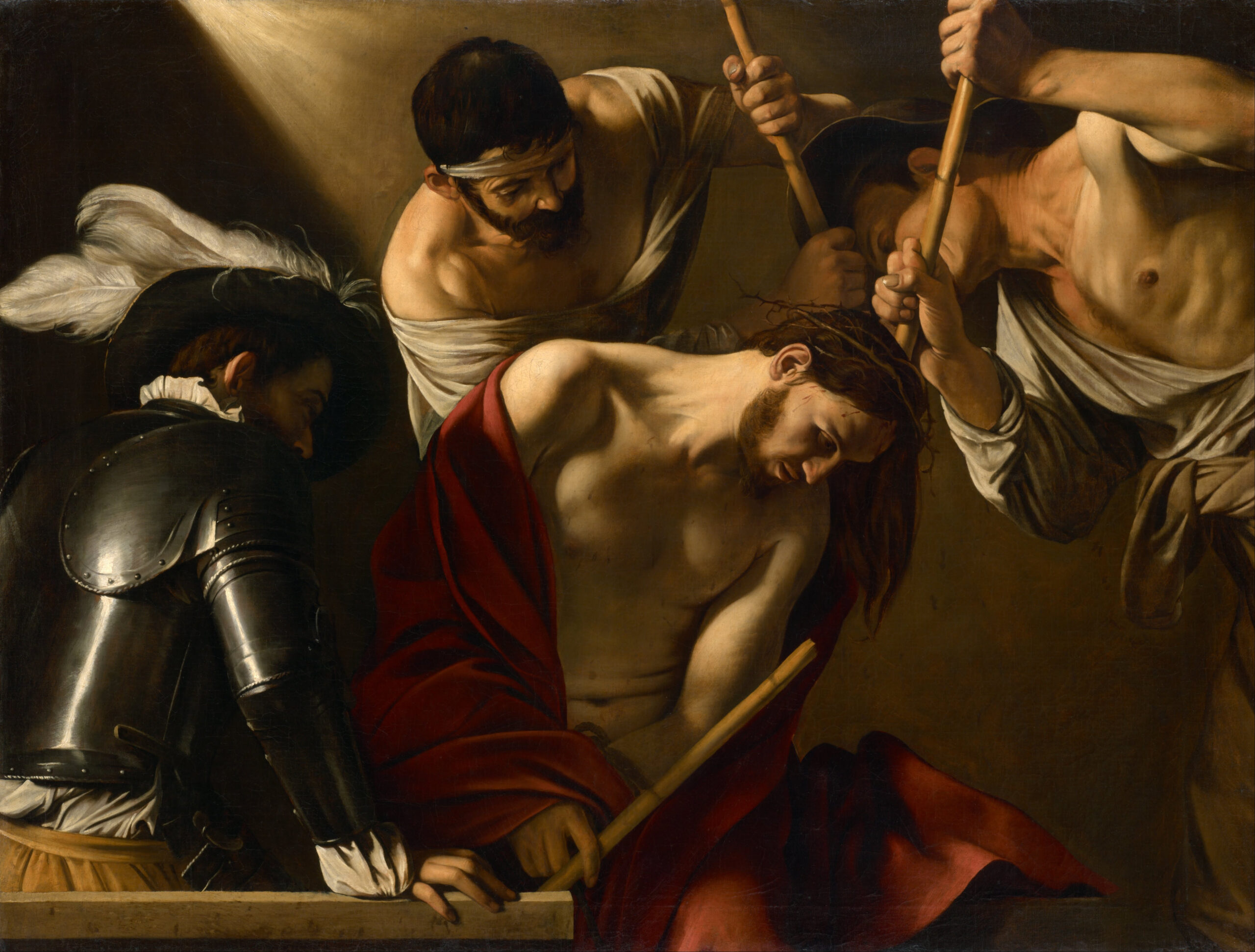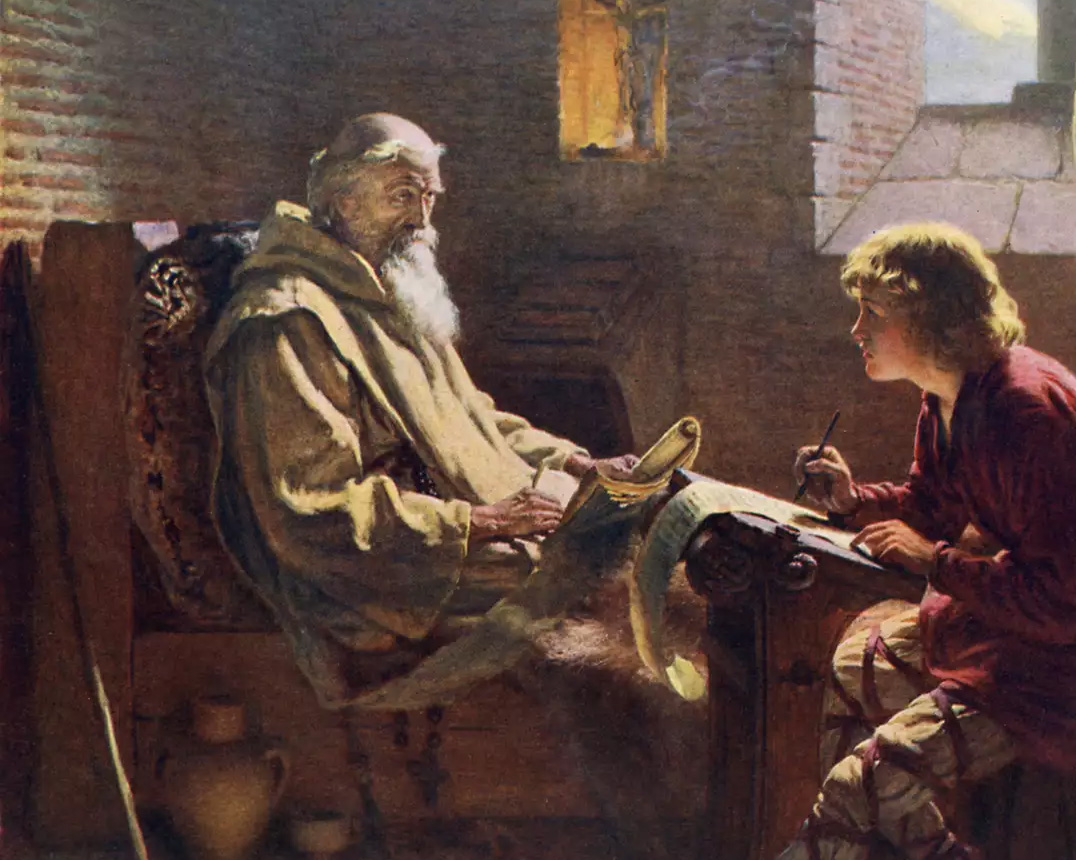“I am not allowed in these columns to discuss politics or religion, which is inconvenient; as they are the only two subjects which seem to me to have the slightest element of interest for a sane man.”
That was the English convert to Catholicism GK Chesterton writing in the Illustrated London
News in 1908.
Chesterton became known as the Apostle of Common Sense. Another word for common sense is
“natural law” which means the way things work, the way they were designed to be used. The
Catholic Church teaches that “natural law expresses the original moral sense which enables man
to discern by reason the good and the evil, the truth and the lie” (CCC, 1954)
The Catholic Church then is common sense. For it keeps a person sane. Look around the world
today: it has gone insane. This is because it is living the lie. And when the Church calls people out on
the lie, what do many people do? Do they say, “Oh, thank you. I didn’t realize I was living a lie.
I am going to change my life now, and maybe even go to confession”?
No, that seldom happens. Instead, they say things like: “You religious people shouldn’t be
talking about politics. And you shouldn’t be judging me or anyone else with your rigid and
antiquated belief system. In fact, religious beliefs need to be changed to accommodate modern
times.”
“Religious beliefs need to be changed” is by now a common mantra. Hillary Clinton said that to a fawning group of abortion supporters in 2016. That was a chilling statement coming from a person running for the nation’s highest office. And just how would a career politician change religious beliefs? How would that
work? Would she somehow convert hearts? Or would she use the force of law which would include threats to people’s livelihoods and their physical safety?
Religious beliefs were changed by politicians in Chesterton’s beloved England about 500 years
ago. Listen to a scholar describe how they did it:
“Thus if the sacrilegious rebellion was to succeed, the Mass had to be eradicated. All references
to a sacrifice were eliminated from the service. Altars were torn down and replaced by
communion tables. Belief in transubstantiation was considered a heresy punishable by death.
Cranmer’s assault on the Holy Eucharist provided the impetus for laws passed by parliaments to
exterminate the Mass from England and later from Ireland.”
Tragically, the man Cranmer, mentioned above, the one who assaulted the Holy Eucharist, was
not a member of Parliament, or some other government official. No, he was the Archbishop of
Canterbury, the top priest in all of England. The secular government could not have toppled the
Church without top players on the inside. There was nothing new in this. It started with Judas, and continues on to today. There are people in positions of power in the Church who are non-
believers. And they seek to change the teaching that Christ put in place. They seek to change the belief of those “rigid and backward” Catholics who hold on to the belief in transubstantiation.
The term “transubstantiation” is a term given to us by the Church that means “change of
substance.” It means that the essence of a thing, what a thing is, changes. Transubstantiation
takes place at Holy Mass when the priest, standing in for Christ says, “This is my Body … This
is my Blood.” When that happens the substance of the bread and wine changes to Christ’s Body
and Blood. It becomes the holiest thing on earth. How could it not be?
Look up “Declaration Against Transubstantiation” to get an idea of what English Catholics were
once up against. The “Declaration Against Transubstantiation,” a 1691 government statute
mandated anyone taking civil office to declare:
“I [ name] do solemnly and sincerely in the presence of God profess, testify, and declare, that I do
believe that in the sacrament of the Lord’s Supper there is not any transubstantiation of the
elements of bread and wine into the body and blood of Christ, at or after the consecration
thereof, by any person whatsoever; and that the invocation or adoration of the virgin Mary, or
any other saint, and the sacrifice of the Mass, as they are now used in the church of Rome, are
superstitious and idolatrous” (English Statute 3 William and Mary, chapter 2, section 5, in
Danby Pickering, ed., The Statutes at Large, vol. 9, 1764, p. 131).
Superstitious and idolatrous. Really? Friends, all the Church Fathers, from the very beginning,
preached that Holy Mass was a sacrifice; that Christ was the priest and victim of the sacrifice;
and that the bread and wine became His Body and Blood during the sacrifice. That is what was
passed on to them.
That is what was passed on to St. Paul which he shared to the Corinthians in 54 AD, that which was heard read today at Mass. In the 1970 Roman Missal, “experts” cut off the end of the passage. It’s the part that says one eats his own condemnation if he receives Holy Communion unprepared. Why did they cut the
passage off? Did they do that perhaps because it was an obvious declaration for transubstantiation? It makes one wonder, since religious beliefs have radically changed since 1970. Only a minority of Catholics now believe in transubstantiation. A great many then approach the altar in a serious state of sin, and say “amen” to something they think is akin to a cracker. They then commit the twofold sin of sacrilege and idolatry. This is the truth, however inconvenient.
This is the truth that self-described “devout” Catholic politicians ignore at their own peril, as
well as their bishops who are supposed to love them and give them the truth about the eternal
danger sacrilegious Communions present to their souls. The bishops are silent, and these same
“Catholic” politicians have been silent as Christian (mostly Catholic) organizations and churches
are being targeted by often paid mobs bent on violence.
Friends, I’m afraid we have a big problem on our hands. We are living in a time of sacrilegious
rebellion like the Church has not seen in a long time; a time of all-out assault on the Holy Eucharist. Who is going to help us? Our Department of Justice, or “Catholic” politicians? No, I’m afraid our
government wants our religious beliefs to be changed. Shall we change them? Or should we rigidly hold on to what was passed on from the beginning?
Friends, transubstantiation is the truth, because Christ said so. Transubstantiation delivers us
Christ’s Body and Blood – instead of a cracker. Without transubstantiation we, as Christ
warned, have no life in us. But with transubstantiation we keep the commandments, become
zealous for the Lord, and strive to become saints.
So you see? Transubstantiation is common sense. And this common sense is needed if we are to
solve the modern problems we face. In response to the question of how Christ would solve
modern problems if He were on earth today, Chesterton responded:
“I must answer it plainly; and for those of my faith there is only one answer. Christ is on earth
today; alive on a thousand altars; and He does solve people’s problems exactly as He did when
He was on earth in the more ordinary sense. That is, He solves the problems of the limited
number of people who choose of their own free will to listen to Him.”
My friends, be part of that limited number. Look to the only answer, who hangs on the cross for
you in His eternal sacrifice. Listen to Him say: Religious beliefs have to be changed. So go do
your part to change beliefs and save souls. Strengthened with my Body and Blood you will laugh
at the danger and violence coming your way.
And if it comes to it, you will laugh and rejoice when you are convicted of heresy for your belief in transubstantiation. You will remain sane in a world headed for hell by being able to discern by reason the good and the evil, the truth and the lie.


